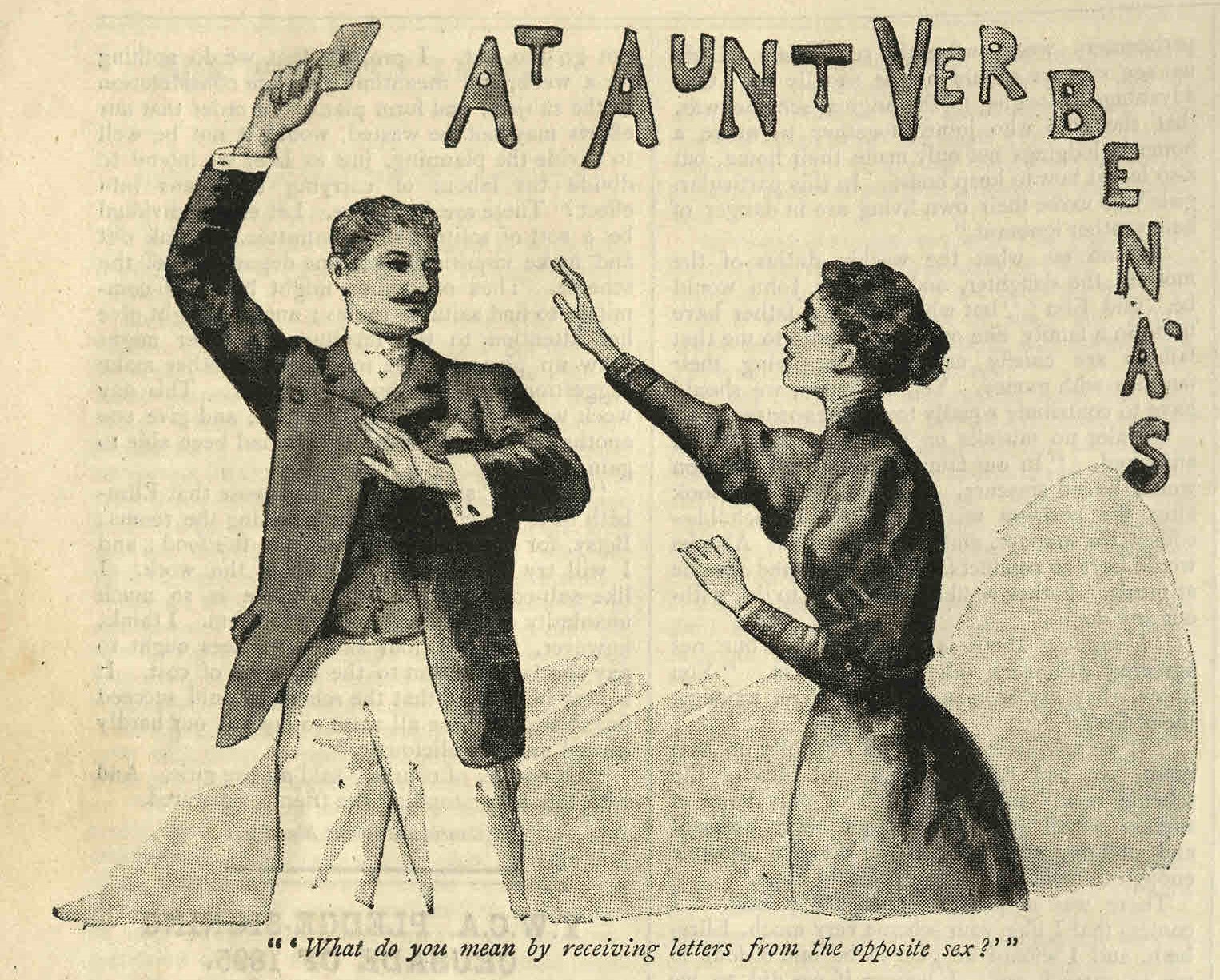Sex, sexuality and sex work, 1870-1930
Overview:
Our collections for this period contain limited material relating to sex, though there are some sources which look at sexuality from either a moral or medical standpoint. The Young Women's Christian Association and Homes for Business Girls in London archives includes some material relating to the organisations' work with young (usually working class) women to provide them with 'moral' lodgings or support in an attempt to save them from potential temptations of city life. The YWCA magazines can also include advice aimed at young women.
Several archive collections contain material relating to attempts to reduce sexually transmitted or venereal diseasesLink opens in a new window and the associated work of groups which campaigned on 'social hygiene'Link opens in a new window.
= This symbol after a link means that it links to catalogue descriptions of the documents (including the reference numbers which will help you to order up the original documents at the MRC).
= This symbol after a link means that it links to digitised copies of the documents.
Selected sources:
Pamphlets on venereal disease, 1868-1872Link opens in a new window
Small volume of pamphlets relating to venereal disease (VD) and hospital management, included in the archives of Rev. Brooke Lambert. The publications include comment on the extent of sexually transmitted diseases, and the social and moral effects on the population. One of the main subjects of debate is the controversial 1864 Contagious Diseases Act, legislation which allowed police to arrest any women suspected of being a prostitute in army or navy towns and compel her (in some cases forcibly) to have a gynaecological examination. There were no sanctions against male clients. The volume includes pamphlets from opposite sides of the debate - campaigners who wanted the Act (and resultant "instrumental rape") abolished and those who wanted it extended to other areas of the country.
Handbill warning women against kidnappings, 1880Link opens in a new window
Notice circulated by the publishers of the magazine 'The Christian', providing women with advice to avoid abduction and, by implication, sexual assault, trafficking and the 'white slave trade'.
'Patriotism of women', [1914]Link opens in a new window
Appeal by Lord Kitchener to the nation's women, published as a leaflet by the League of Honour. It identifies women as "the danger", and asks the female half of the population to "fight yourselves" and not treat men to alcohol or provide them with other "temptations".
Booklet published by the National Council for Combating Venereal Diseases. The contents was based on two addresses on sex education given to mothers of girls attending high schools and secondary schools in Birmingham.
Draft circulars relating to hostels for girls, 1918Link opens in a new window
The hostels were run by the Young Women's Christian Association to provide a safe environment for young women in London and save them "from grave moral danger". The circulars comment on the changes in attitudes caused by the First World War.
'Fathers and mothers of happy girls', [1919]Link opens in a new window
Leaflet appealing for money to fund hostels for "the girls who have stumbled or the girls who walk in dangerous paths". It comments on the change in attitudes caused by the war and the rise of a new "flapper" type of woman.
'Your boy', 1923Link opens in a new window
Article in the Young Women's Christian Association magazine 'Our Own Gazette', advising its readers on dealing with feelings of love, distinguishing between different types of attraction.

Illustration from one of the melodramatic serials run by 'Our Own Gazette'Link opens in a new window. The ideas of religious love, rather than romantic or sexual love, and self-sacrifice were recurrent themes of the stories aimed at young women.
